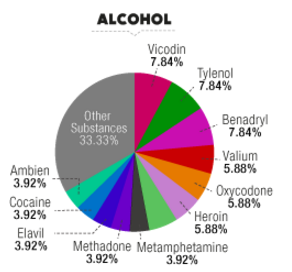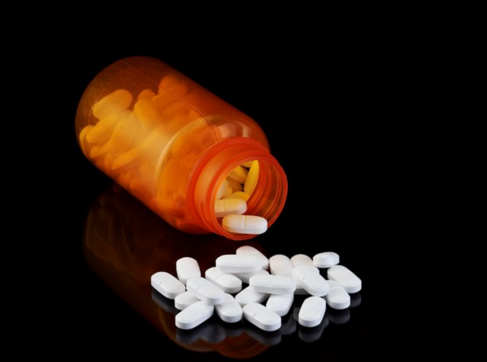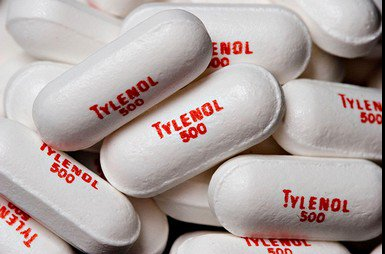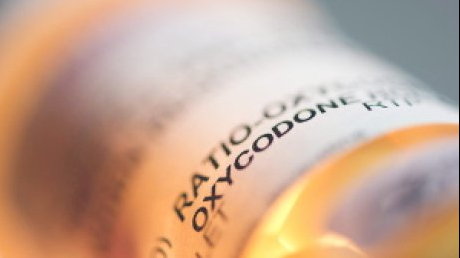The 5 Pills You Definitely Shouldn't Mix With Alcohol

By:
If you've ever read the label of a prescription pill bottle, or listened to an advertisement for a new pharmaceutical drug, you probably know that drugs and alcohol don't mix. While the side effects can be as mild as dizziness or fatigue, new data published by Detox.net shows which combinations have the greatest likelihood of producing a deadly result.
 Detox.net - detox.net
Detox.net - detox.net
The study — which is based on the 2013 Annual Report of the National Poison Data System — identified which specific prescription and over the counter medications were present in the most alcohol-based overdoses reported to 57 poison control centers across the country. The "other" substances category comprised Ultram, Robitussin, Restoril, Morphine, and Lamictal combined, Nelson Garcia, a media liaison for the project, told ATTN: over email.
ATTN: looked into the five chart-topping prescription and over the counter pills you shouldn't take while drinking—and why.
1. Vicodin - 7.84% of alcohol overdoses
Vicodin, a brand name for the mixture of acetaminophen and hydrocodone, slows respiration, according to an NBC News report. This effect is enhanced by alcohol, which is also a depressant.
 Twitter/WNYC
Twitter/WNYC
The National Institute on Alcohol Abuse and Alcoholism also warns against combining alcohol with hydrocodone, and lists possible side effects and dangers:
"Drowsiness, dizziness; increased risk for overdose; slowed or difficulty breathing; impaired motor control; unusual behavior; memory problems"
2. Tylenol - 7.84 percent of alcohol overdoses
Acetaminophen, Tylenol's active ingredient, is also unwise to combine with alcohol. Acetaminophen is an analgesic and antipyretic, which means it relieves pain and reduces fevers, according to the National Library of Medicine.
 Twitter/republicbuzz
Twitter/republicbuzz
The NIH notes that drinking and taking Tylenol can lead to liver damage. "Alcohol consumption substantially increases the risk of acute liver failure from acetaminophen overdose," UC San Diego Health reports. It may also increase your heart rate and upset your stomach, even causing stomach bleeding and ulcers, according to the NIH.
3. Benadryl Allergy & Sinus Headache - 7.84 percent of alcohol overdoses
Benadryl Allergy & Sinus Headache contains Diphenhydramine and Acetaminophen, and is used primarily as a an allergy medication. Some people also take Benadryl as a sleeping pill, as it causes drowsiness.
The National Highway Traffic Safety Administration warns that alcohol enhances the effects of Benadryl, particularly "drowsiness, sedation and decreased motor skills." Benadryl can increase the likelihood of alcohol overdose, according to the NIH.
4. Valium - 5.88 percent of alcohol overdoses
Valium, or diazepam, is a benzodiazepine typically prescribed for anxiety and epilepsy.
An official autopsy found that Artist Thomas Kinkade died in April 2012 from this lethal combination, CNN reported. According to the report, both alcohol and Valium lower blood pressure and slow down your brain, central nervous system, and heart rate. This can also cause someone to fall into a coma, and make their heart stop.
Combinations of these depressants may be euphoric, but they also can be deadly.
“When the patient mixes alcohol plus Valium, oftentimes the effect can be greater than those alone,” Bruce Goldberger, a professor and director of toxicology at the University of Florida Medicine told CNN. “This phenomenon is known as synergistic. So 1 plus 1 is not 2, but 3 or 4, demonstrating an enhanced effect, rather than taking the drugs alone.”
5. Oxycodone - 5.88 percent of alcohol overdoses
Oxycodone, like hydrocodone, is an opioid painkiller, so the dangers of mixing it with alcohol are similar to those of Vicodin.
 Twitter/CBCNS
Twitter/CBCNS
Opiods and alcohol are both highly addictive, so it is particularly dangerous for alcoholics and heavy drinkers to be prescribed oxycodone. Mixtures can cause cardiac and respiratory problems, brain and organ damage, and even death, according to Project Know.
Hockey Player Derek Boogaard died of an overdose of the two substances in 2011, according to the New York Times.
“A narcotic pain reliever is a depressant and so is alcohol,” John Challis, the senior vice president for treatment at Daytop, a New York and New Jersey drug addiction treatment organization told the New York Times. “When you combine the two, you can cause a system shutdown.”
This story, first published on March 6, was updated on March 7 to correct that Benadryl does not contain Acetaminophen. The story now clarifies that Acetaminophen is found in Benadryl Allergy & Sinus Headache, which is a distinct drug.
